
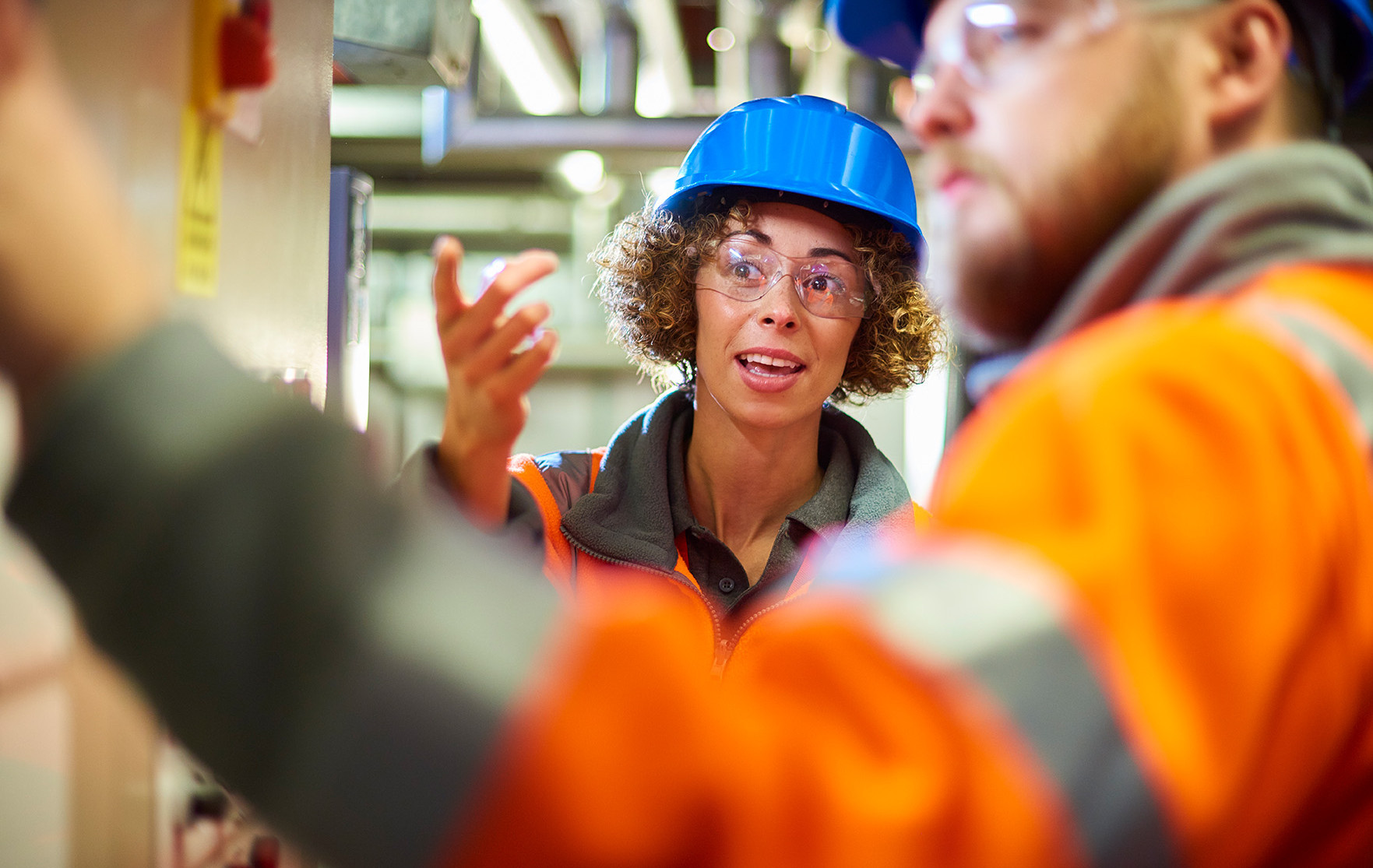
The DVGW is a scientific and technical association that promotes the gas and water industry. Get to know the DVGW Group, its tasks, goals and services!
Maintenance engineers; © iStockphoto.com/Sturti
Quality, safety, innovation
The German Technical and Scientific Association for Gas and Water (abbreviated DVGW) is a technical and scientific association that supports the gas and water industry. Its main focus is on safety, hygiene and environmental protection. The DVGW is economically independent and politically neutral. It works closely with numerous European partners and is involved in international research collaborations. Due to its expertise in Germany, the DVGW is also an important player in shaping European and international standardization. The association creates generally recognized technical rules for these areas. In doing so, it relies on research results from its own and initiated research projects. It certifies products, services and experts for gas, hydrogen and drinking water. Through its training and continuing education programs, the DVGW provides instruction on the latest technical findings. With the DVGW Congress and other events, it enables extensive exchange within and between industries. Find out more about the DVGW Group, our objectives and services, our sustainability initiatives and our history.
The German Technical and Scientific Association for Gas and Water (abbreviated DVGW) is a technical and scientific association that supports the gas and water industry. Its main focus is on safety, hygiene and environmental protection. The DVGW is economically independent and politically neutral. It works closely with numerous European partners and is involved in international research collaborations. Due to its expertise in Germany, the DVGW is also an important player in shaping European and international standardization. The association creates generally recognized technical rules for these areas. In doing so, it relies on research results from its own and initiated research projects. It certifies products, services and experts for gas, hydrogen and drinking water. Through its training and continuing education programs, the DVGW provides instruction on the latest technical findings. With the DVGW Congress and other events, it enables extensive exchange within and between industries. Find out more about the DVGW Group, our objectives and services, our sustainability initiatives and our history.
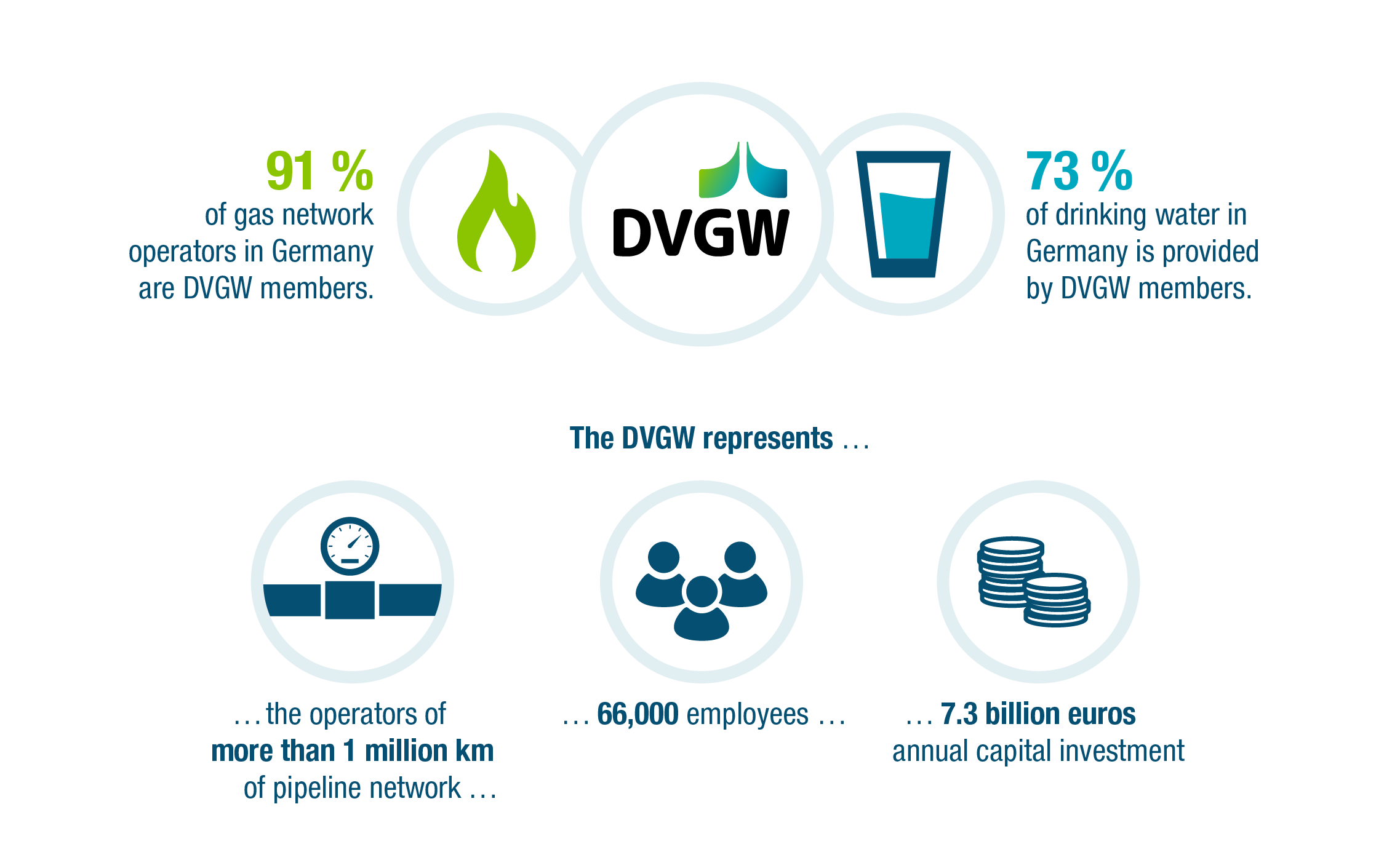
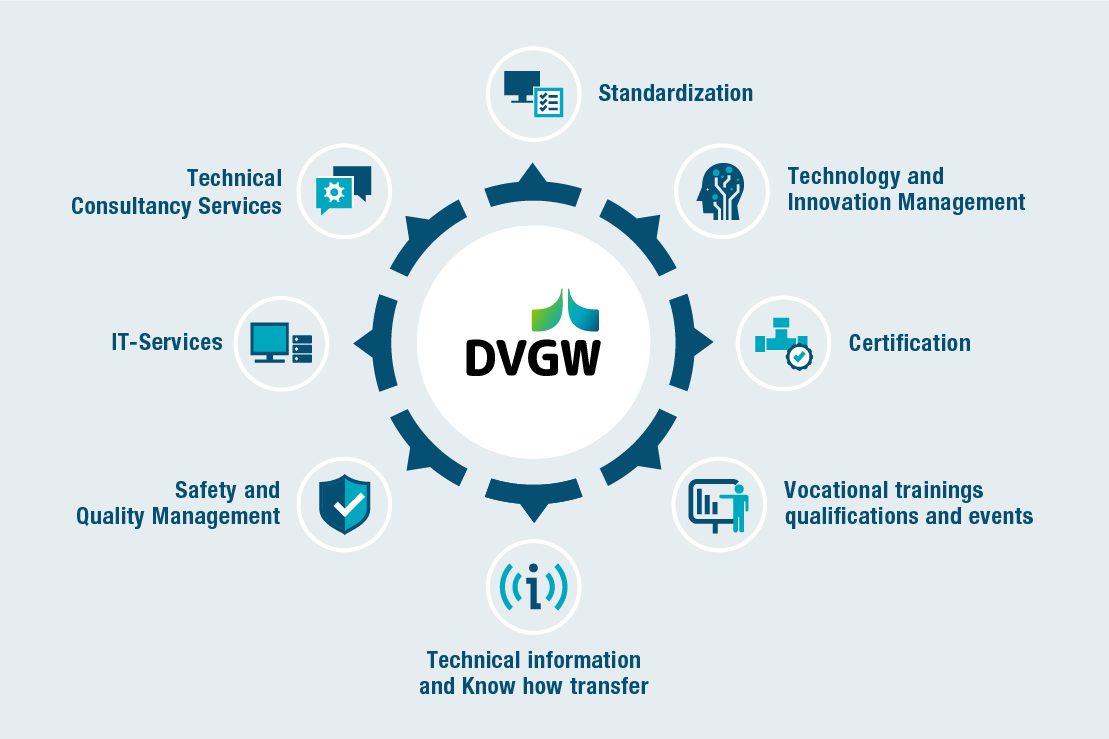
The DVGW offers a range of services in the following areas:
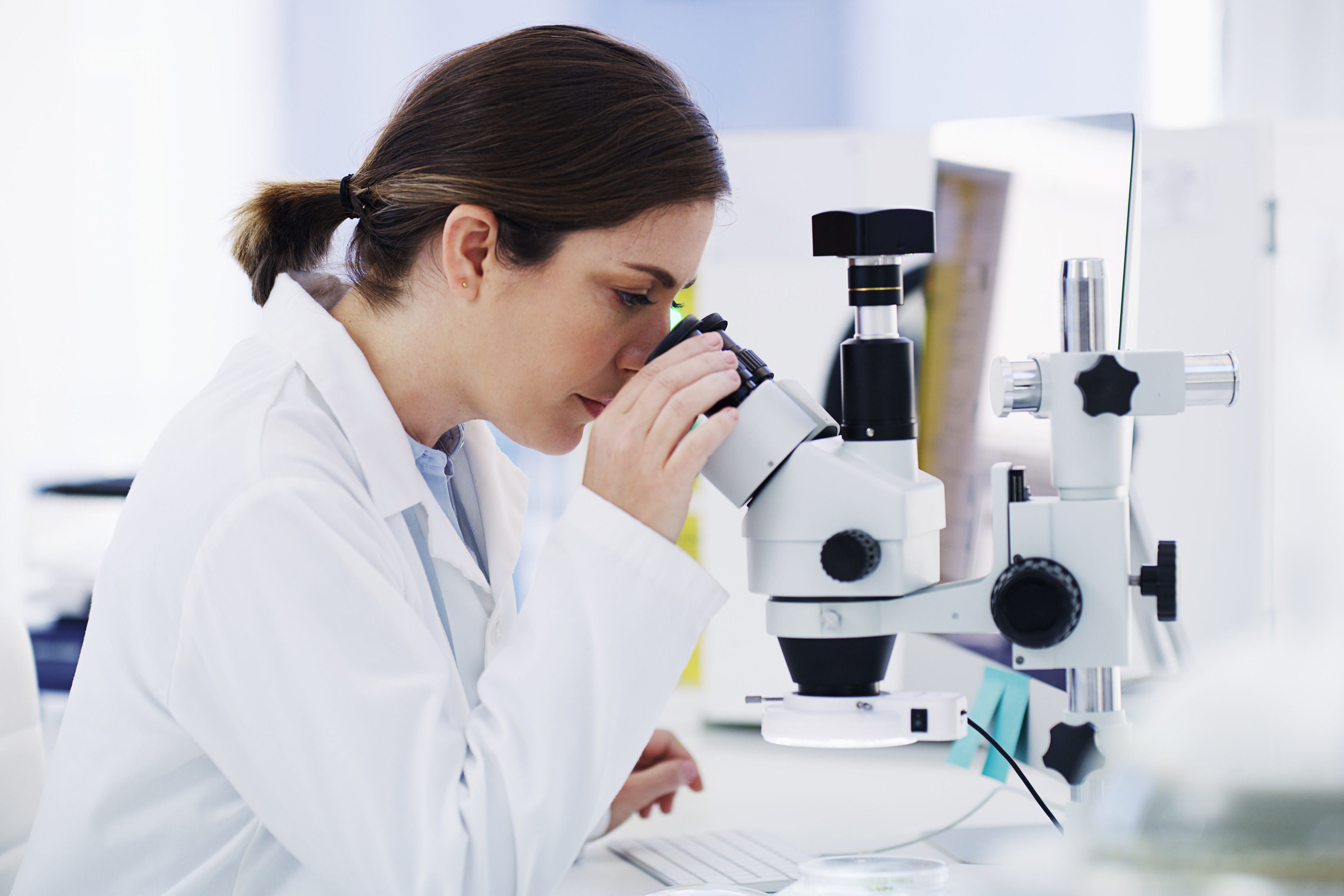
Through research and innovation, we are setting the course for tomorrow's energy and drinking water system. We are committed to a safe and climate-friendly energy supply with new gases. With innovative approaches and technologies, we want to ensure a sustainable water supply.
To the website Research and Innovation
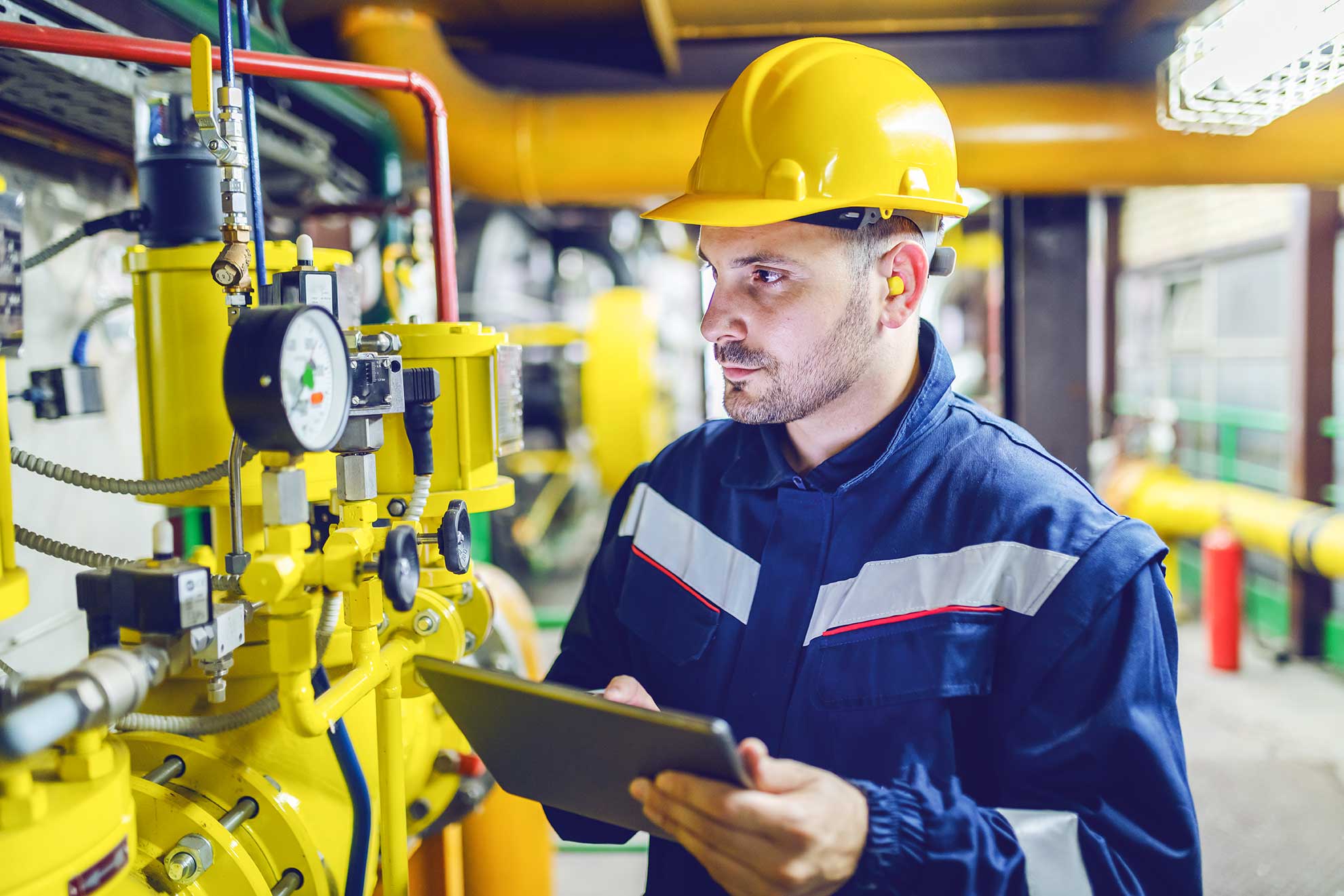
The DVGW set of rules and regulations forms the basis for all activities in the gas and water industry (CO2, H2, CH4 and H2O). There are now around 800 codes of practice and test specifications as well as testing principles and 700 DIN standards. Many of them – especially in the energy sector – are also available in English.
To the English Set of Rules
Learn more about technical self-regulation in Germany
The DVGW works closely with numerous international organisations and partners and is involved in international research collaborations. Its experts are also represented in European and international standardisation committees that are important for the gas and water industry. The DVGW's Berlin office is responsible for the association's activities in the area of German energy and water policy. It also coordinates the DVGW's European networks in Brussels. The DVGW is represented in Brussels by its European research arm, the European Research Institute for Gas and Energy Innovation (ERIG a.i.s.b.l.).
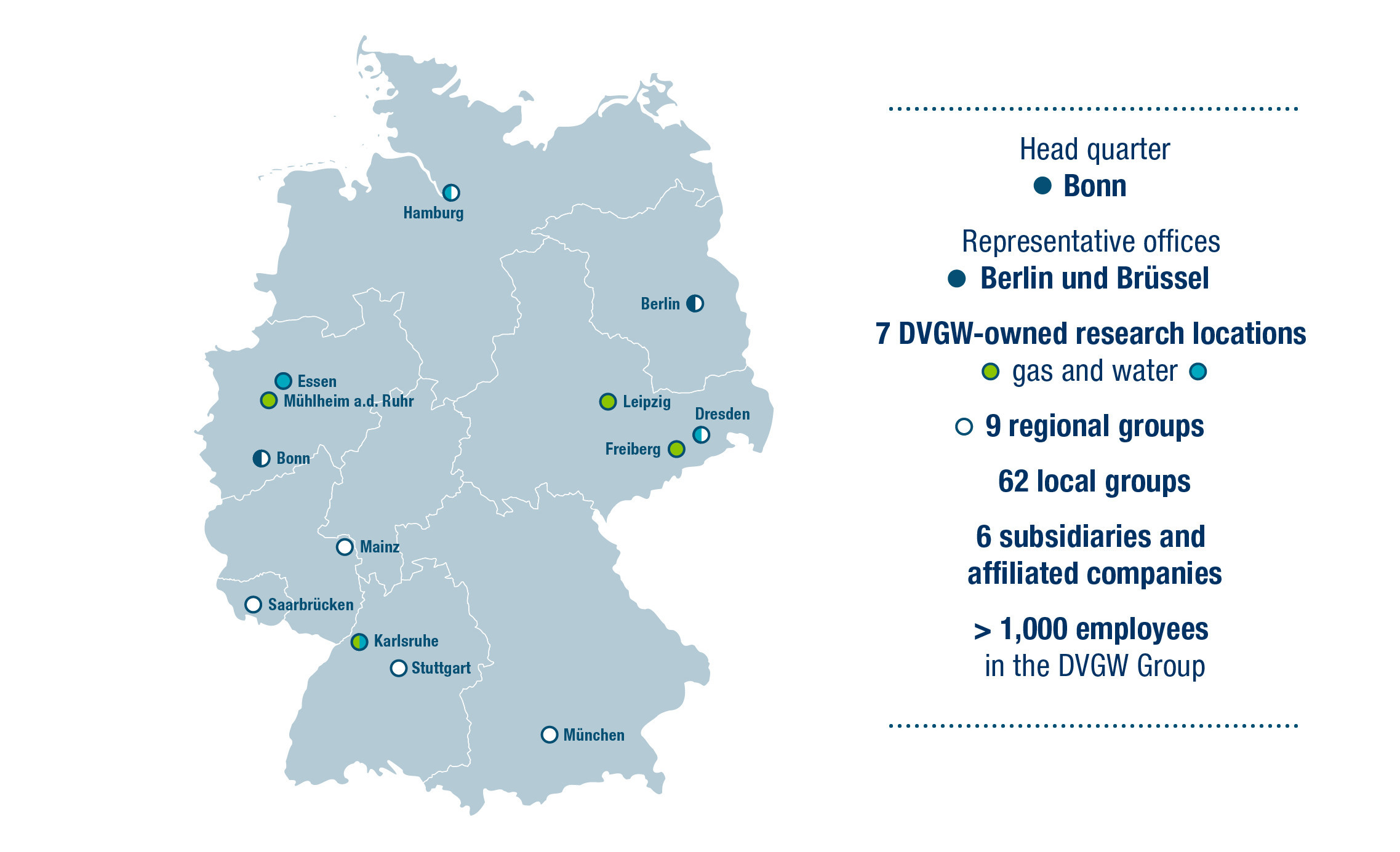
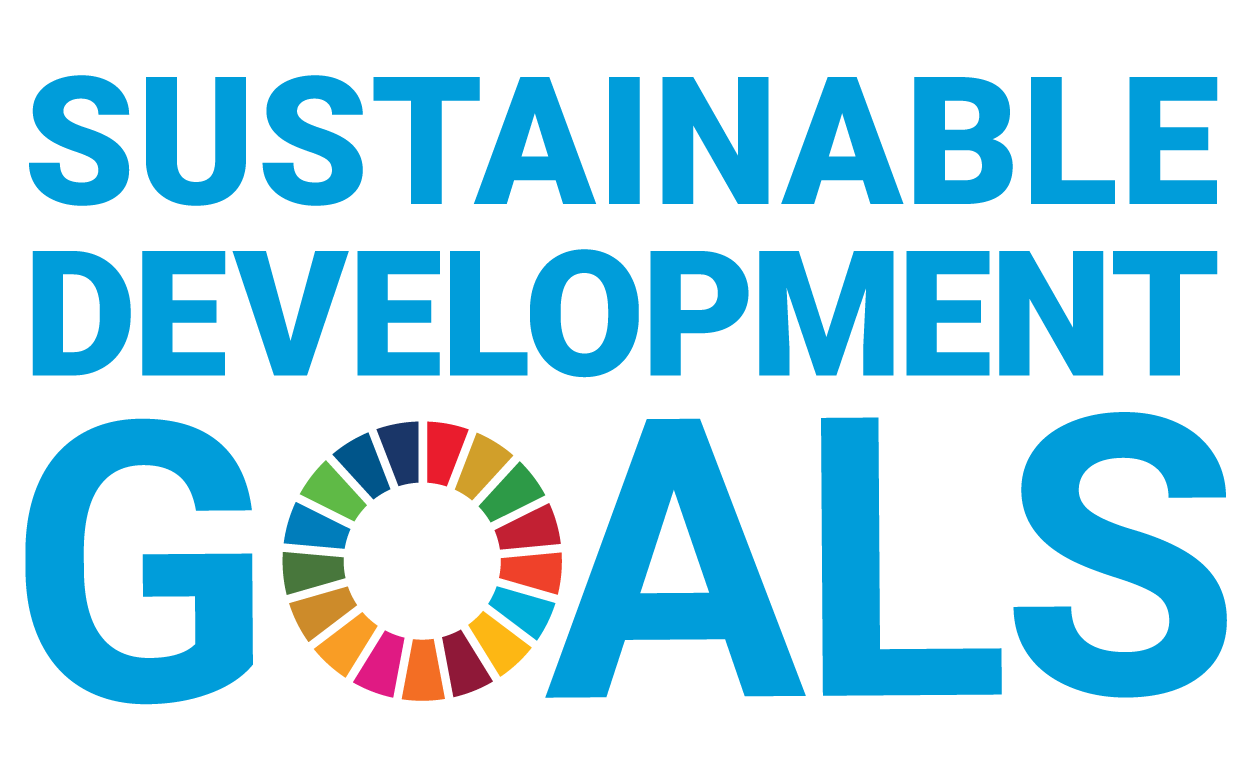
With the 2030 Agenda, the United Nations has defined 17 Sustainable Development Goals (SDGs) for socially, economically and ecologically sustainable development and a sustainable future. The DVGW supports this initiative and, in accordance with the SDGs and its statutes, focuses on the following seven goals.
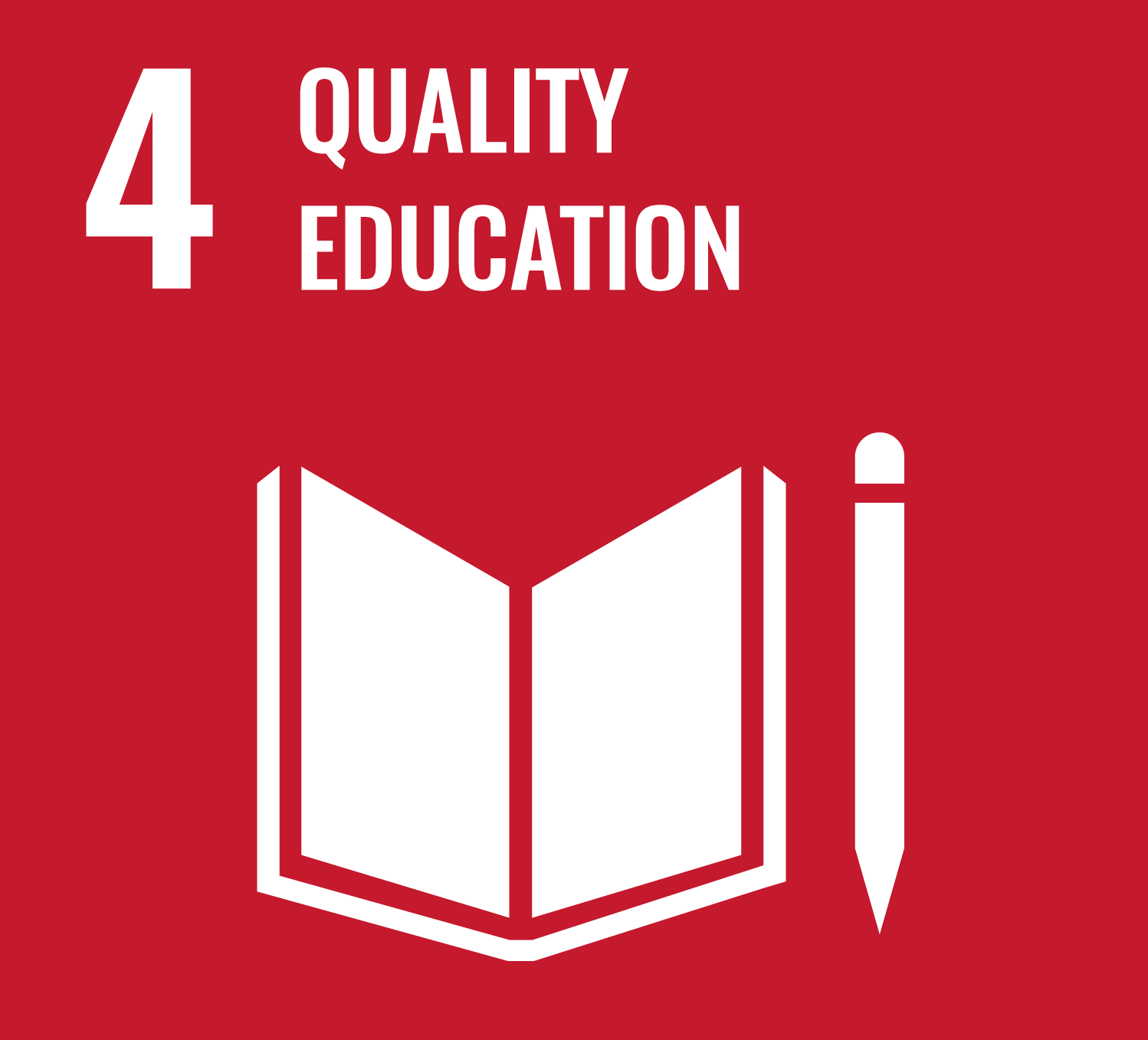
Our goal is to provide everyone with access to high-quality education, both online and in person. In addition to the wide range of educational opportunities offered by DVGW Berufliche Bildung and DVGW Kongress GmbH, we also offer free access to specialist information. Through events such as Lunch & Learn and research seminars, we make our expertise available through various media. In this way, we ensure the transfer of knowledge as well as training and continuing education within the industry.
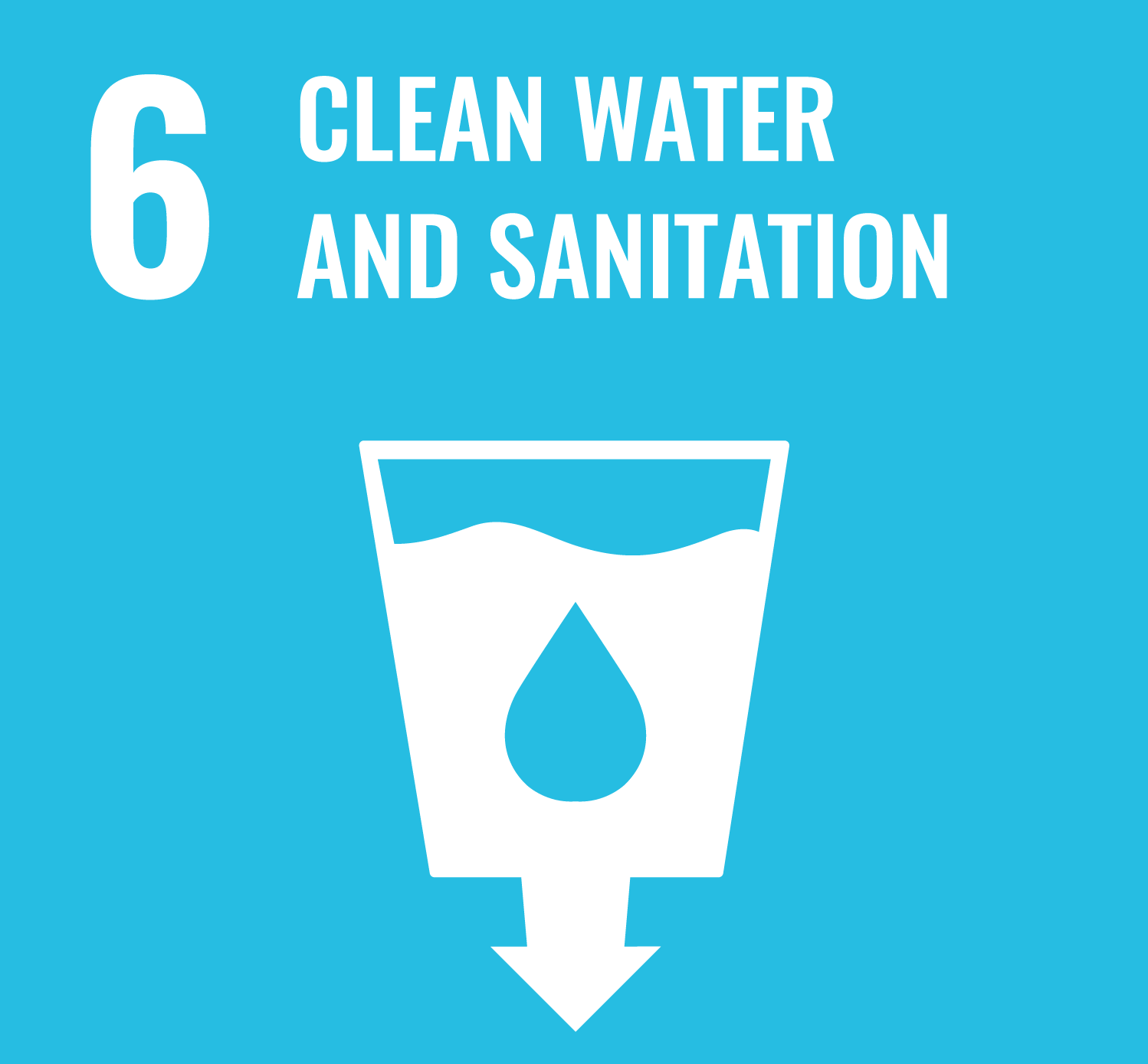
Clean drinking water is by no means a matter of course, but rather the achievement of many stakeholders. However, climate change and more frequent extreme weather events are increasingly posing challenges for the water industry. Our regulations and the DVGW's ‘Water for the Future’ programme are committed to greater water protection and offer future-proof solutions for the preservation of clean drinking water.

In order to achieve the climate neutrality targeted by Germany by 2045, the DVGW supports the transformation towards a climate-neutral energy supply. With our rules and regulations, we provide the conditions for the technically safe use of new, climate-friendly gases such as hydrogen or biomethane.
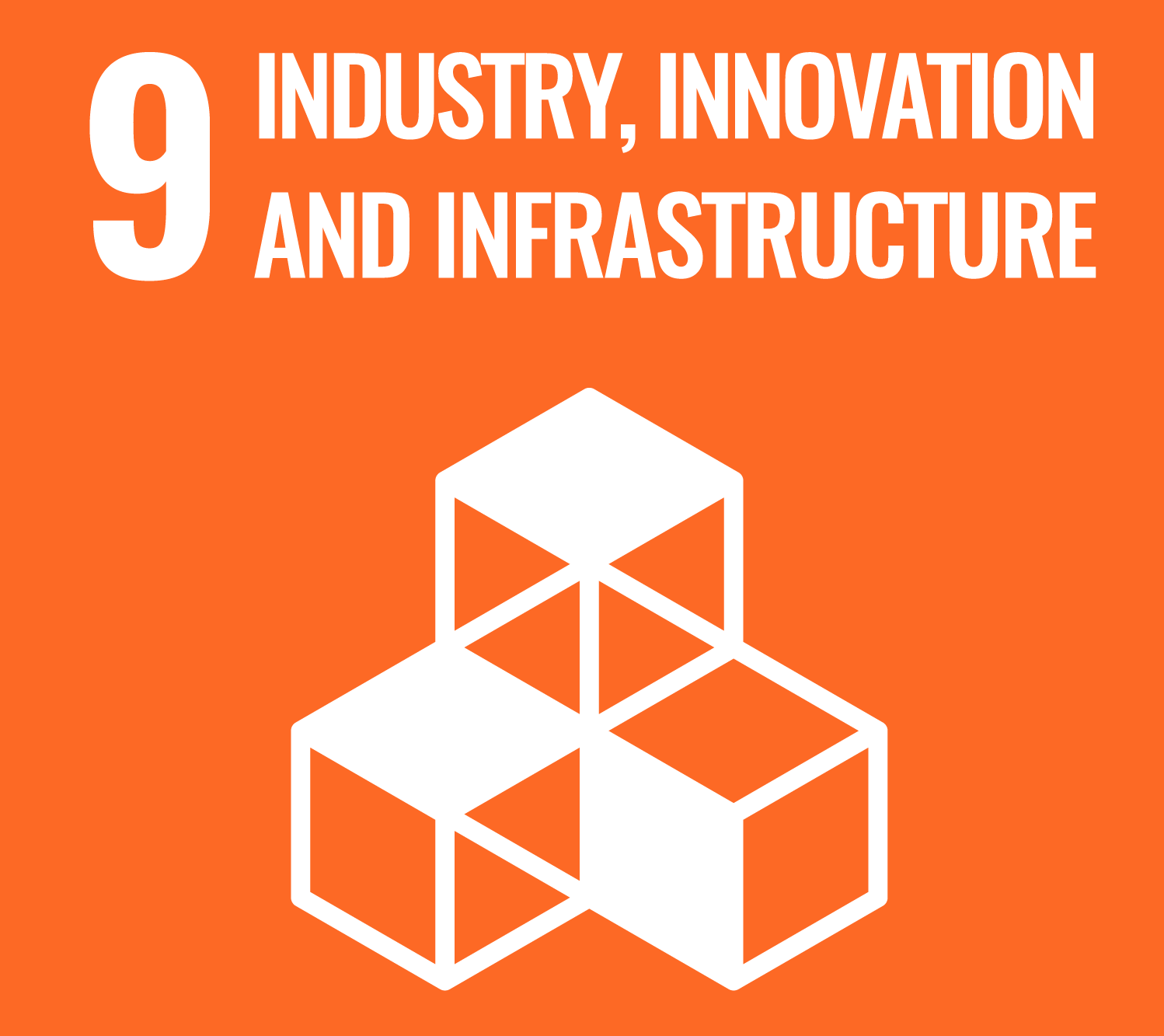
A resilient infrastructure, technical innovations and a sustainable industry are the basic prerequisites for future economic growth in Germany. Through our research work and the early identification of technical challenges, we are able to set standards for a high-performance and modern infrastructure in the energy and water supply.

Sustainable urban and municipal planning is essential to achieving the goal of climate neutrality. It is also one of the most effective ways of countering the effects of climate change on water supplies, in conjunction with forward-looking water protection. Through various initiatives and projects, we are committed to ensuring a secure supply of climate-neutral gases and sufficient hygienically safe drinking water in times of climate change.

Climate protection is an important driver of our research projects. The DVGW is committed to the safety, environmental compatibility and economic efficiency of energy and water supply through numerous research projects. Our goal is to promote the switch from natural gas to new, climate-neutral gases such as hydrogen and biomethane and to set important guidelines for the future of water protection.
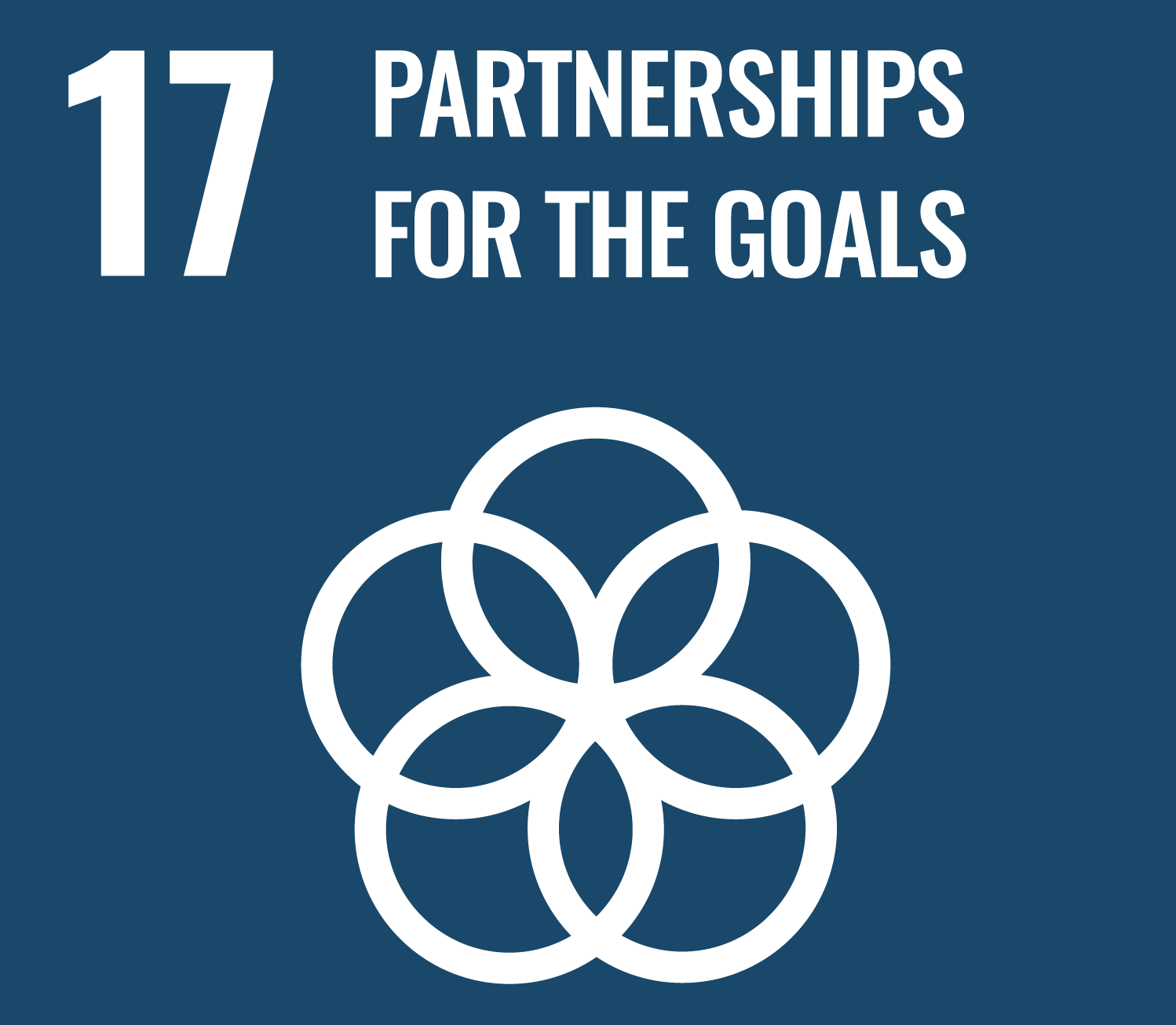
Strong together! Intensive dialogue and trusting cooperation with research institutes, partners, associations and politicians promote the transfer of knowledge, technical expertise and acceptance for the implementation and achievement of climate targets.
(The content of this publication has not been approved by the United Nations and does not reflect the views of the United Nations or its officials or Member States.)